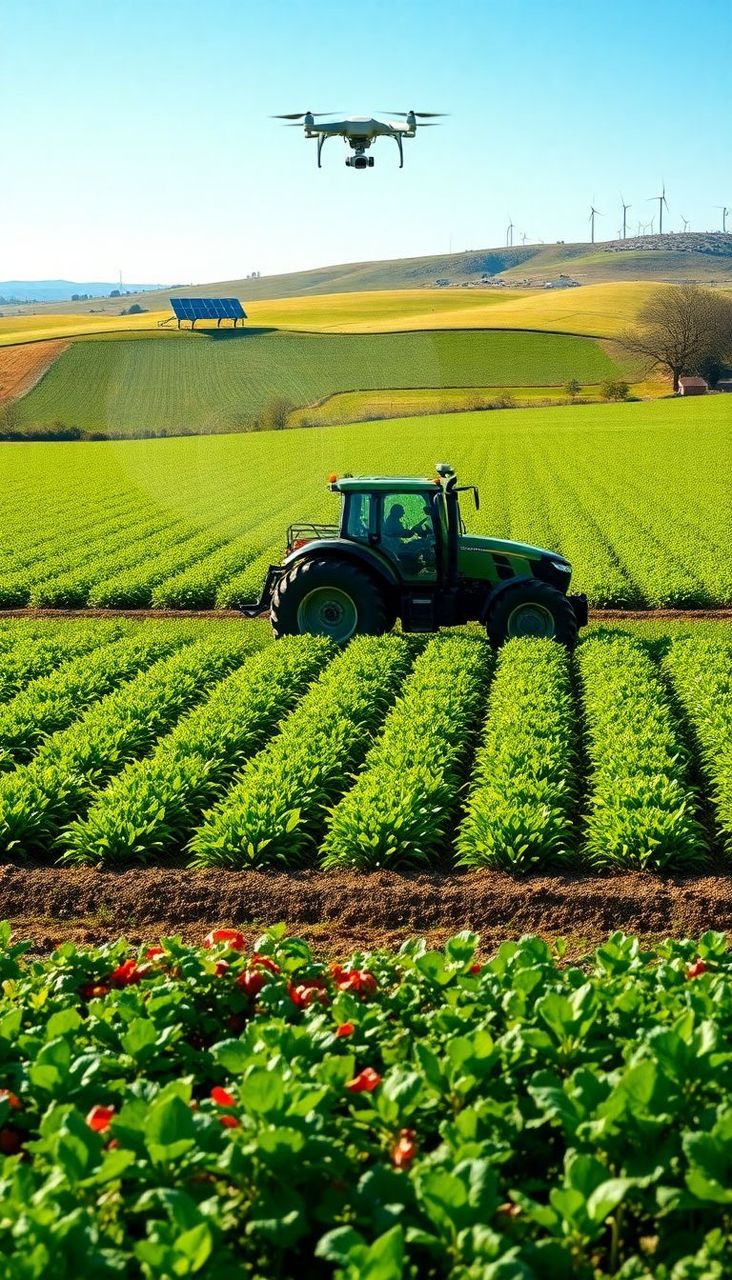Africa stands at a crossroads in its agricultural journey. Home to 60% of the world’s uncultivated arable land and a growing population projected to double by 2050, the continent has immense potential to feed not only itself but also a significant portion of the world. Yet, agriculture in Africa has long grappled with low productivity, climate challenges, limited access to markets, and outdated farming practices. Fortunately, a wave of innovation—driven by technology, entrepreneurship, and policy reform—is transforming the agricultural landscape. This shift is not only boosting food security but also opening up new economic opportunities across the continent.
Digital Transformation on the Farm
The proliferation of mobile technology has been one of the most significant enablers of innovation in African agriculture. Mobile apps and platforms are providing farmers with access to vital information—weather forecasts, market prices, and pest alerts—that was previously out of reach. Services like Kenya’s iCow and Nigeria’s FarmCrowdy are helping farmers make informed decisions, connect with buyers, and secure micro-financing.
Drones and satellite imaging are also being employed to monitor crop health, predict yields, and optimize water usage. Companies like Aerobotics in South Africa are using precision agriculture tools to analyze fields from the sky, allowing farmers to respond proactively to threats and inefficiencies.
Climate-Smart Agriculture
With climate change threatening traditional farming cycles, innovation in climate-smart agriculture is becoming increasingly critical. African innovators are developing drought-resistant crops, introducing agroforestry techniques, and promoting conservation agriculture to maintain soil health.
In countries like Ethiopia and Malawi, farmer cooperatives are adopting crop rotation and intercropping systems that improve yields and reduce vulnerability to extreme weather. Additionally, solar-powered irrigation systems are helping to mitigate water scarcity, especially in arid regions.
Agribusiness and Value Addition
A shift from subsistence farming to agribusiness is fueling rural development and job creation. Entrepreneurs across Africa are adding value to raw agricultural products, creating new income streams and reducing post-harvest losses. For instance, startups are producing cassava flour, tomato paste, and dried fruit for both local consumption and export.
Processing and packaging innovations are also helping to extend the shelf life of perishable goods, thereby connecting farmers to more distant and profitable markets. As a result, smallholder farmers are increasingly integrated into formal value chains, elevating their income and resilience.
Access to Finance and Insurance
Lack of capital has historically hampered agricultural growth in Africa. However, fintech innovations are breaking down these barriers. Mobile banking and digital wallets allow farmers to save securely and receive payments efficiently. Micro-lending platforms use alternative data, such as mobile phone usage and transaction histories, to assess creditworthiness, enabling smallholders to access loans.
In addition, agricultural insurance is becoming more accessible. Products like index-based insurance use satellite data to determine payouts, eliminating the need for costly on-site assessments. This protects farmers against climate shocks and gives them the confidence to invest in their farms.
Policy and Infrastructure Support
Innovation alone cannot drive change without the right infrastructure and policy environment. African governments and regional bodies are increasingly recognizing the importance of agriculture in their development agendas. Investments in rural roads, storage facilities, and irrigation systems are improving the overall agricultural ecosystem.
Public-private partnerships are also playing a crucial role in scaling successful innovations. Collaboration between governments, NGOs, tech companies, and financial institutions is creating supportive environments for agritech startups and rural cooperatives.
A Vision for the Future
The transformation of African agriculture is not a distant dream—it is already unfolding. From tech-savvy farmers to pioneering agripreneurs, a new generation is feeding the continent with ideas as much as with crops. If current momentum is maintained and scaled, Africa could not only achieve food security but become a global leader in sustainable agriculture.
In the words of Dr. Akinwumi Adesina, President of the African Development Bank, “The future of Africa’s prosperity depends on agriculture.” And thanks to innovation, that future is being cultivated today.


Leave a Reply